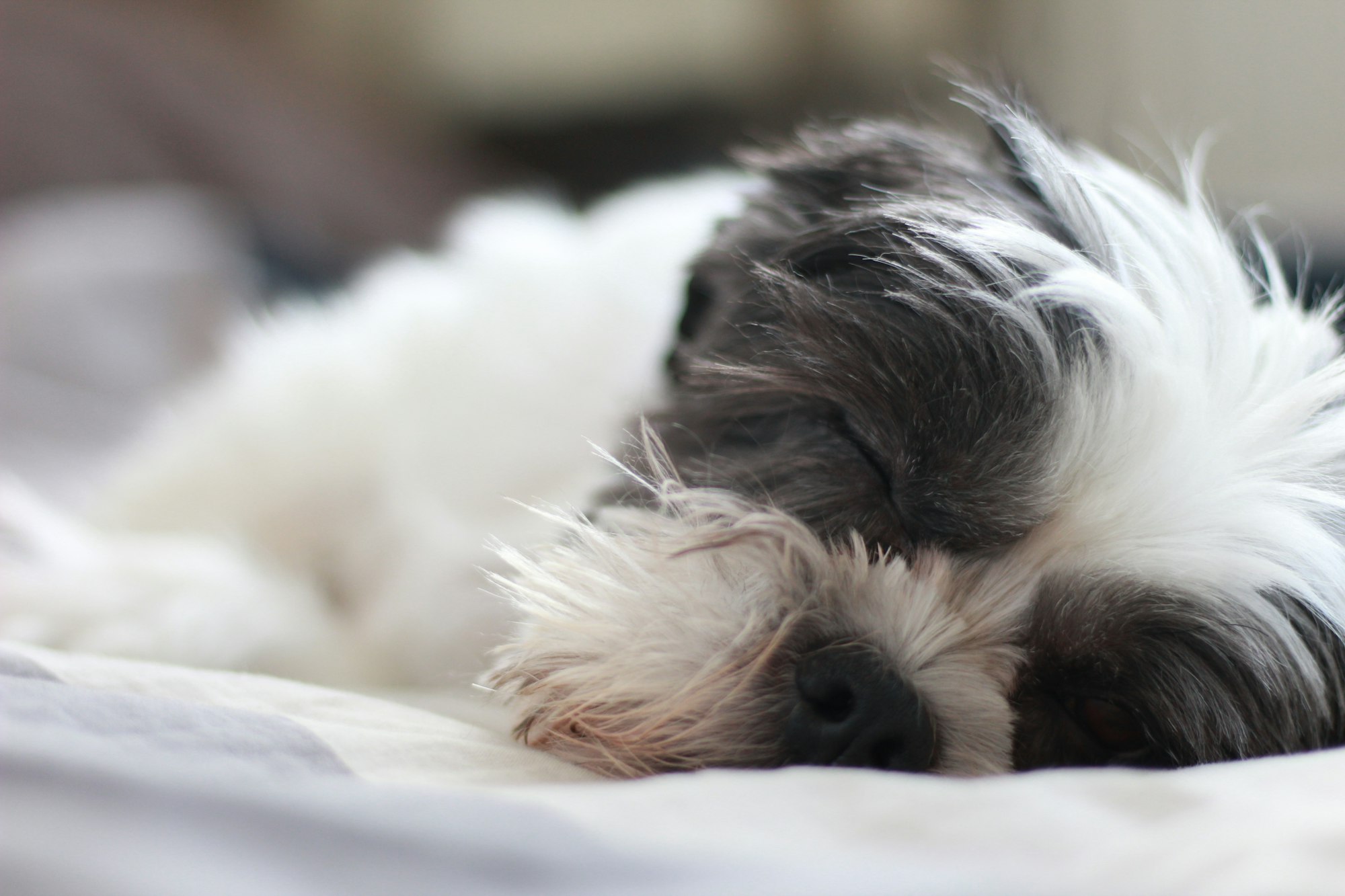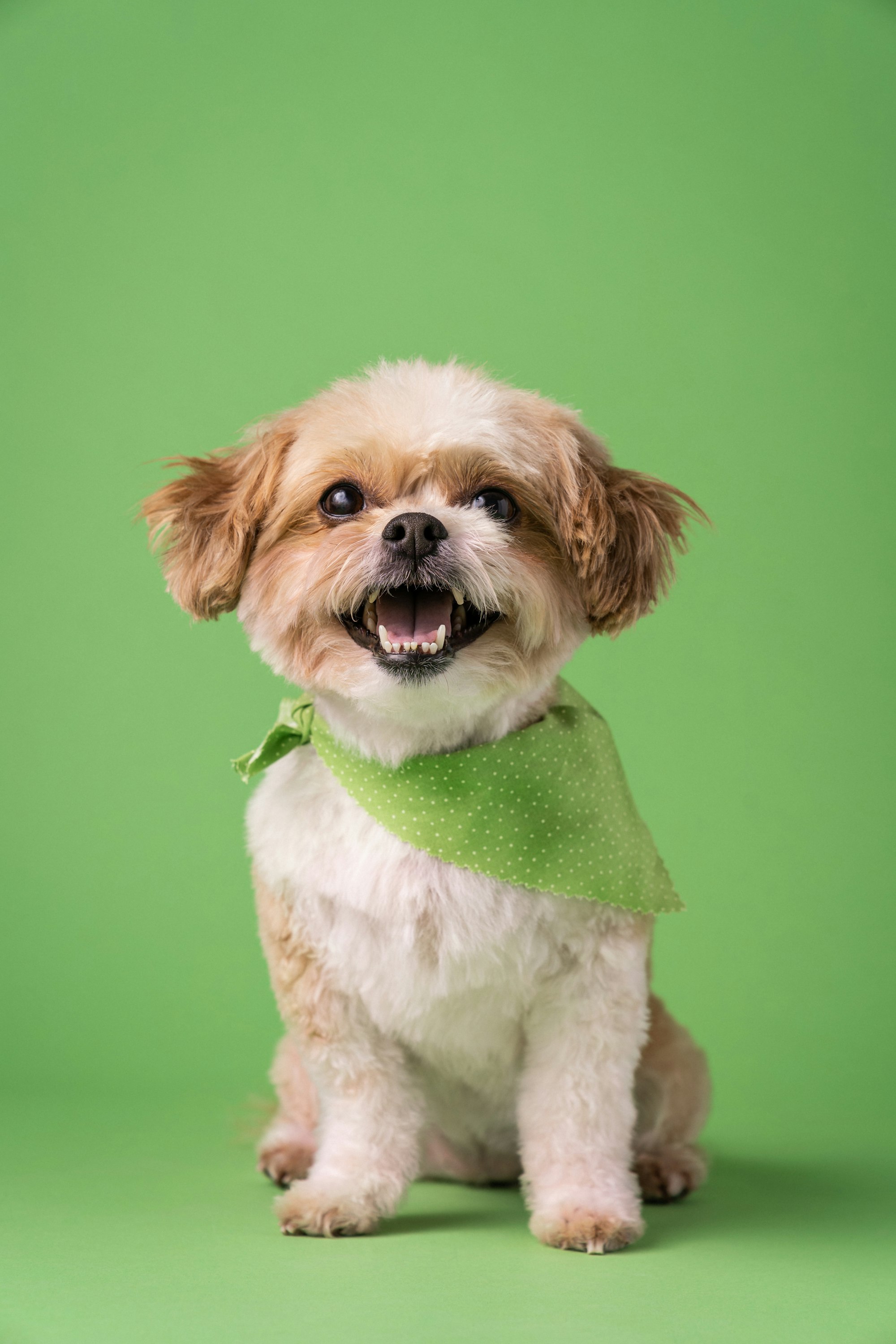If you're considering getting a dog but suffer from allergies, finding a hypoallergenic breed is essential. One popular breed that often comes up in conversations about hypoallergenic dogs is the Shih Tzu. In this article, we'll explore whether a Shih Tzu is truly hypoallergenic and discuss how to manage allergies if you decide to bring one into your home.
Understanding Hypoallergenic Dogs
Before we delve into the specifics of the Shih Tzu breed, let's clarify what hypoallergenic means in the context of dogs. Hypoallergenic dogs are those that produce fewer allergens or have coats that are less likely to cause allergic reactions in sensitive individuals. It's important to note that no dog breed is completely hypoallergenic, as allergens can still be present to some extent.
The Shih Tzu Breed

The Shih Tzu is a small toy breed known for its luxurious, long, and flowing coat. This breed is highly regarded for its friendly nature, affectionate personality, and compatibility with different living situations. Shih Tzus are often sought after by individuals and families who desire a companion dog that thrives on human interaction.
Shih Tzu Coat and Allergens
The coat of a Shih Tzu plays a significant role when it comes to allergens. The Shih Tzu breed is known for its beautiful and luxurious coat, which requires regular grooming and maintenance. This breed has hair rather than fur, and its hair grows continuously, much like human hair. This characteristic is often seen as an advantage for individuals with allergies, as it reduces the amount of shedding and dander in the environment.
Dander is one of the primary allergens produced by dogs. It consists of tiny particles of dead skin that can trigger allergic reactions in sensitive individuals. Shih Tzus produce dander, although in lesser quantities compared to some other breeds. However, it's important to note that no dog breed is completely hypoallergenic, and there is no guarantee that a Shih Tzu will not cause any allergic reactions.
Apart from dander, other allergens associated with dogs include saliva and urine. Shih Tzus do produce saliva, and some individuals may have allergic reactions to it. However, compared to breeds that drool excessively, Shih Tzus tend to have minimal issues in this regard. Urine can also contain allergens, but with proper house training and cleanliness practices, the risk can be minimized.
It's essential to understand that each individual's sensitivity to allergens can vary. While some people with allergies may find that they can tolerate being around a Shih Tzu with minimal symptoms, others may still experience allergic reactions. If you or someone in your household has allergies, it is crucial to spend time with a Shih Tzu before deciding to bring one into your home to assess your individual reaction.
In summary, while the Shih Tzu breed's coat is considered advantageous for individuals with allergies due to reduced seasonal shedding and dander, it is critical to remember that Shih Tzus are not completely hypoallergenic. Allergens such as dander, saliva, and urine can still be present, albeit in lesser amounts compared to some other breeds. If you have allergies, it's recommended to spend time with a Shih Tzu before making a decision and to consult with healthcare professionals for appropriate allergy management strategies.
Managing Allergies with Shih Tzus

If you or someone in your household has allergies but still want to have a Shih Tzu as a furry companion, there are several strategies you can employ to help manage your symptoms effectively. By taking proactive measures, you can create a more comfortable living environment for both you and your Shih Tzu. Here are some tips for managing allergies with Shih Tzus:
1. Regular grooming: Keeping your Shih Tzu coat clean and well-maintained is crucial for minimizing allergens. Regular brushing helps remove loose hair and reduces the amount of dander in their coat. It is recommended to brush your Shih Tzu outside to prevent allergens from dispersing indoors. Know how to groom a dog in brief.
2. Bathing: Giving your Shih Tzu regular baths using hypoallergenic shampoos can help reduce allergens on their coat and skin. Consult with your veterinarian to determine the appropriate bathing frequency and products suitable for your Shih Tzu skin and coat type.
3. Maintaining a clean living environment: Vacuuming your home frequently with a vacuum cleaner equipped with a high-efficiency particulate air (HEPA) filter can effectively remove allergens from carpets, rugs, and furniture. Regularly washing your pet's bedding in hot water can also help eliminate allergens.
4. Creating allergy-free zones: Consider designating certain areas of your home as allergy-free zones. For example, you can keep your bedroom off-limits to your Shih Tzu to provide you with a safe space free from allergens. Use baby gates or other barriers to restrict access if needed.
5. Air filtration: Investing in a high-quality air purifier with a HEPA filter can help remove airborne allergens, including pet dander, from your indoor environment. Place the air purifier in rooms where you and your Shih Tzu spend the most time.
6. Personal hygiene: After interacting with your Shih Tzu, wash your hands thoroughly to remove any allergens that may have transferred from their coat to your skin. Avoid touching your face or rubbing your eyes before washing your hands.
7. Consulting with healthcare professionals: If your allergies are severe or causing significant discomfort, consult with your healthcare professional or an allergist. They can guide allergy management strategies, including medications such as antihistamines or nasal sprays, that may help alleviate your symptoms.

Remember, managing allergies is a personalized process, and what works for one person may not work for another. It's essential to find a balance that suits your individual needs and consult with professionals for personalized advice.
Grooming Practices for Allergy Sufferers
When it comes to grooming your Shih Tzu as an allergy sufferer, there are specific practices you can follow to minimize allergens and maintain a clean and healthy environment. By implementing proper grooming routines, you can reduce the allergens associated with your Shih Tzu coat and help alleviate allergy symptoms. Here are some grooming tips for allergy sufferers:
1. Regular brushing: Brush your Shih Tzu coat frequently to remove loose hair, tangles, and mats. This not only helps keep their coat looking neat and beautiful but also helps reduce the amount of loose hair and dander that can trigger allergies. Use a brush specifically designed for Shih Tzus or one with gentle bristles to prevent any discomfort.
2. Bathing: Regular baths are essential for maintaining a clean and allergen-free coat. Use a hypoallergenic shampoo that is suitable for your Shih Tzu skin type. Avoid using harsh or heavily scented shampoos, as they can potentially irritate the skin and exacerbate allergies. Follow the bathing instructions recommended by your veterinarian to ensure proper cleaning without drying out the skin.
3. Eye and facial care: Shih Tzus are known for their beautiful and expressive eyes. However, tear stains can be a concern for allergy sufferers. Keep the area around your Shih Tzu's eyes clean and dry by gently wiping it with a damp cloth or using specialized tear stain wipes. This helps prevent the buildup of allergens and reduces the risk of eye-related allergies.
4. Ear care: Shih Tzus are prone to ear infections, which can worsen allergy symptoms. Regularly inspect and clean your Shih Tzu's ears using veterinarian-approved ear-cleaning solutions. Gently wipe the outer part of the ear, avoiding inserting anything deep into the ear canal. If you notice any signs of infection or discomfort, consult your veterinarian for appropriate treatment.
5. Paw and nail care: Keep your Shih Tzu's paws clean and trimmed to minimize the tracking of allergens into your home. Regularly wipe their paws with a damp cloth after outdoor walks or playtime. Trim their nails to an appropriate length to prevent scratching, which can lead to skin irritation and allergies.
6. Professional grooming: Consider taking your Shih Tzu to a professional groomer for regular grooming sessions. Professional groomers have the expertise and tools to properly groom and maintain your dog's coat color. They can also trim the hair around the paws, face, and sanitary areas, reducing the risk of allergen buildup.

Remember to create a grooming routine that works best for you and your Shih Tzu. By implementing these grooming practices, you can help minimize allergens and create a more comfortable environment for you and your furry companion.
Tips for Reducing Allergens in Your Home
To create a more allergen-friendly environment for both you and your Shih Tzu, it's crucial to implement certain measures within your home. By reducing allergens in your living space, you can significantly minimize allergy symptoms and create a more comfortable atmosphere. Here are some tips for reducing allergens in your home:
1. Regular vacuuming: Vacuum your home frequently, focusing on areas where allergens tend to accumulate, such as carpets, rugs, and upholstered furniture. Use a vacuum cleaner equipped with a high-efficiency particulate air (HEPA) filter to effectively capture and trap allergens, including pet dander and dust mites.
2. Wash bedding and linens: Wash your Shih Tzu's bedding, as well as your own, regularly in hot water. This helps eliminate allergens such as dander, pollen, and dust mites. Consider using hypoallergenic laundry detergents and avoid hanging bedding or clothes outside to prevent them from collecting outdoor allergens.
3. Maintain optimal humidity levels: Keep the humidity in your home at an optimal level, usually between 30% and 50%. High humidity can promote the growth of mold and dust mites, while low humidity can lead to dryness and irritation. Use a dehumidifier or humidifier to maintain balanced humidity levels, depending on your specific needs and climate.
4. Improve ventilation: Proper ventilation helps circulate air and remove allergens from your home. Open windows when the weather permits to allow fresh air to flow through your living space. Use exhaust fans in bathrooms and kitchens to reduce moisture and minimize the risk of mold growth.
5. Remove clutter: Clutter provides hiding places for allergens and makes cleaning more challenging. Keep your home organized and minimize clutter to make it easier to clean and reduce allergen accumulation. Regularly dust and wipe surfaces to remove allergens effectively.
6. Choose allergen-resistant materials: When selecting furniture, curtains, and other fabrics, opt for materials that are less likely to trap allergens, such as leather or vinyl. Washable blinds or shades are easier to clean compared to heavy curtains that can collect dust. Consider using allergen-resistant pillowcases and mattress covers to create a barrier against dust mites.
7. Keep pets out of certain areas: Designate certain areas of your home as pet-free zones, especially bedrooms or rooms where individuals with allergies spend a significant amount of time. This helps create an allergen-free sanctuary for allergy sufferers.
8. Regularly clean and maintain your HVAC system: Dust, pet dander, and other allergens can accumulate in your heating, ventilation, and air conditioning (HVAC) system. Change filters regularly and consider professional HVAC cleaning to ensure clean air circulation throughout your home.

By implementing these tips, you can significantly reduce allergens in your home and create a more comfortable living space for both you and your Shih Tzu.
Conclusion
In conclusion, while no dog breed can be considered completely hypoallergenic, Shih Tzus are often sought after by individuals with allergies due to their low-shedding coats and minimal dander production. However, it's crucial to note that the level of allergenicity can vary from person to person. If you have allergies, it's advisable to spend time with a Shih Tzu before making a decision. Additionally, implementing proper grooming practices and managing your home environment can help reduce allergens and improve your overall experience with a Shih Tzu as a pet.
Frequently Asked Questions (FAQs)
Q1. Are Shih Tzus completely hypoallergenic?
A: No, while Shih Tzus may produce fewer allergens than some other breeds, they are not completely hypoallergenic.
Q2. Do Shih Tzus shed a lot?
A: Shih Tzus have hair rather than fur, which reduces shedding. However, their coats require regular grooming to prevent matting.
Q3. Can I have a Shih Tzu if I have severe allergies?
A: It's recommended that individuals with severe allergies spend time with a Shih Tzu before committing to see how they react to the breed.
Q4. Are there any specific grooming products I should use for my Shih Tzu?
A: Using hypoallergenic shampoos and conditioners can be beneficial for allergy sufferers.
Q5. Can regular grooming practices significantly reduce allergens? A: Yes, regular grooming, including brushing and bathing, can help reduce allergens in a Shih Tzu's coat.






